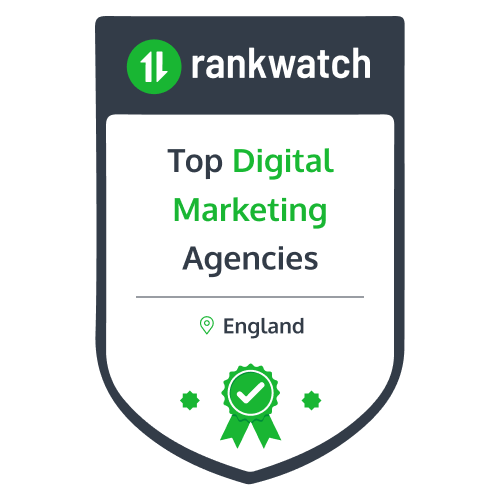

No Bull Marketing Ideacast \ Season 2 Episode 1
GGT \ A Moment in Time
Mike Cornwell
Mike Cornwell, denizen of the agency world, formerly of Ogilvy, Rapier, McCann/MRM, TBWA\, Grey and others, CXO of multiple agencies (currently COO of Ladder.io), as well as former IDM CEO, spills the beans on what made GGT the perfect agency.
We’re excited to share his wisdom with you on agency success, managing growth curves, and why trust before output matters in client-agency relationships.
Transcript:
PRE-INTRO:
MC: We were all blessed to be in a set of circumstances that were, literally, a one-off. Never happened before or since.
We were able to invest in our business and invest in our people, especially, in a way where you absolutely couldn’t do it now.
INTRO:
BH: Hello, and welcome to the No Bull Marketing Ideacast. I’m Becky Holland.
In this new season of the No Bull Ideacast, I wanted to try something new. I’ve been listening to a lot of podcasts and I mean A LOT.
And now spring has turned into summer, and I wanted to try to make sure that our podcast would be at least a little bit more interesting and entertaining. But, the last season was very rehearsed. We planned out the questions in advance. We tried to run it like clockwork. This time, we’re going to keep it a little more relaxed. We’re going to have a bit more chat. We’re going to fly, just a little bit, by the seat of our pants.
And the topic, is around marketing of the future. Sustainable marketing. Venture Marketing.
It’s about test, fail, learn.
It’s about what agencies need to be creative. It’s about what works, and doesn’t work. I’ve got some REALLY cool guests. I’ve got Mike Cornwell, I’ve got Madeleine Evans, I’ve got Alasdair Moore, the amazing Nathan Ansell.
So, episode one of this season is all about the agency model. Specifically, what was so great about TBWA/GGT.
What was the perfect storm? Why was it such a great agency and why do GGT people always look back and say ‘that was the perfect agency experience’ and ‘THAT was the one’?
DISCUSSION:
BH: Introduce yourself to the world, tell us who you are.
MC: I’m the former Chief Executive Officer of TBWA/GGT, of MRM London, of Fall off the Wall. I was Managing Director of Ogilvy and May the Direct, when it was still Ogilvy and May the Direct. I’ve had a fantastic career and been blessed all along the way by the quality of people I’ve worked with and the amount of fun I’ve had in the name of work. Such that, it’s never really been work. It’s always been what I do.
BH: So, all of the episodes that we’ve got coming up are all really about what does marketing look like going forward? We know COVID, we know hybrid working, we know all the rest of it. But, actually, marketing’s been changing, the way agencies work has been changing for quite a long time. It’s funny, you think about, back to the GGT days, and it was great. It was perfect for its time. But, I don’t know whether that would ever happen again. I don’t know whether an agency like that would exist anymore. I guess I just wanted to chat about that, and your agency experiences, GGT, plus Ladder, bit of what we’re doing at BH&P and see what you think.
MC: The things is that, I’ve said this to lots of people and if I haven’t said this to I should have done, that we were all blessed to be in a certain place at a certain time with a set of circumstances that were, literally, a one-off. Unparalleled. Never happened before or since. We worked for Omnicom, which was far better than WPP, in the end.
But the consequences of all that was, that, because we were doing OK, they just left us to it. By ‘them’, I mean the powers that be.
BH: But they want to make money. They want you to do good work that makes them money, and there’s no rocking the boat, why mess with it?
MC: It was literally that, if you’re making the money they demand from you, and you win the odd piece of new business and get some good publicity, it enables them to go up the line to their boss. Tell them everything’s alright. It was more the circumstantial stuff.
When I joined GGT, it was GGT Plc, and it was an advertising agency, called GGT (Gold Greenlees Trott), and GGT Direct. Then, a few other agencies scattered around Europe and America. A notable one of which was BDDP, which was Jean-Marie Dru’s agency. They had a big agency in New York.
What happened was, GGT Plc was doing OK. But, anyway, GGT got into trouble because the agency they had in New York lost their biggest client. But, because their biggest client was huge, it had a massive negative impact on GGT’s share price in the UK.
What happened then was, TBWA was already looking for a way to grow its UK presence. It had a tiny little ad agency in London. Because GGT’s share price went really low, Mike Greenlees didn’t have an option to withstand being offered to be bought by TBWA, because he had to do the right thing for his shareholders. So, we got bought by TBWA. In that process, and this is the really incredible circumstantial thing, they threw three agencies together in London.
There was tiny, little TBWA. They’d already done a pre-deal before the GGT thing came along to buy Bainsfair Sharkey Trott. So, Trotty was now being bought twice! Even though he was at Bainsfair Sharkey Trott, he was no longer at GGT Trott.
GGT merged three ad agencies. They were three really strong, independent, highly creative agencies, under the TBWA banner.
BH: It could’ve gone horribly wrong.
MC: Well, they kept all the right people. They managed it really well. Paul Simons, of Simons Palmer Clemmow Johnson, which was one of the three agencies that came in, he was given an office on the top floor. The whole of the top floor in our building in Dean Street. To see out his contractual one year. It was literally him and his PA on this giant floor. Presumably the biggest budget ever for wining and dining!
But anyway, so, these three incredible creative agencies came together. I was actually given a choice, and we as a Board had to make a decision about whether we became part of TBWA and Omnicom really wanted us. Or whether we went into Omnicom and became one of their other agency service companies like Rapp and all the rest. But, of course, it was a complete no brainer!
Because, the excitement, the glamour. Because, in America, the TBWA brand was THE most creative agency brand going. So, of course it was an absolute no brainer to say ‘I want to be in it’. Mike Greenlees was thrilled because he obviously knew he was going to get the big job leading TBWA globally and was heading off to New York and obviously he couldn’t tell me that.
But, what was more exciting was that Jean-Marie Dru, with them having now been bought, came into London and lived in our offices for six months. He used to hang out with me, and people on our team, Richard Madden and Nick Moore and all those people. He used to hang out with us because he absolutely loved what we did. Bringing together brand promises on the big screen and all the awareness media, and taking those brands and doing what we did, below-the-line, and Jean-Marie hung out with us! I mean, it was extraordinary.
BH: Because we could make stuff that actually got results!
MC: Correct!
BH: Take all those big, cool ideas and, actually, do something real with it.
MC: So, there we were. Of course, Mike Greenlees and Jean-Marie already trusted us a lot. We were just left to get on with what we were doing. But, we added the TBWA branding to our already strong creative brand. It was phenomenal. This is what I’m saying about the circumstances. Those are completely unprecedented circumstances.
Because we were hitting the money target every year, they just let us get on with it. We were hitting the main number which was the profit-before-tax and interest, and as long as we hit, they ignored all the other stuff. So, we were able to invest in our other business, and invest in our people especially, in a way that, you absolutely couldn’t do it now.
BH: Do you think it was the people that made the brand or the brand that attracted the people? Or a bit of both?
MC: It was a bit of both. The brand attracted Nick Moore to it, for sure. Once we were TBWA because he loved that idea, because he was coming from AMV. But, he really wanted to represent, to personally represent, the TBWA brand.
But, no, it was the people. We managed to gather an incredible group of people. Who, in turn, managed to gather an incredible group of people, underneath and around them. It was largely, because we quite quickly got a good reputation as an agency that gave a shit about its people.
BH: Obviously we’ve got the whole COVID thing going on, but why can’t it happen today? Why can’t you have that perfect storm again?
MC: I think the fun has been sucked out of agencies, because everything’s about the money. Of course, the management always have shareholders to answer to, so you understand it. But there is no leeway anymore about how much money you can spend on creating the kind of culture, and the kind of environment, that makes people want to come and work for you. We just established a really strong reputation as an agency that really cared about its people and is really great fun. That set of circumstances, unparalleled set of circumstances, enabled us to do things we could never do. Arguably, we could never have done it even five years later.
BH: It’s a moment in time.
MC: It was a moment in time!
BH: So, you’re obviously doing something new now. The whole Ladder thing has gone around and come back in. So, is Ladder your – it’s not quite the same as GGT – is that your answer to ‘the agency model is not quite what it was’ and ‘not that company anymore and let’s do something different’?
MC: It’s quite significantly different, in terms of what they want and need me to do and where the agency is. At GGT, we almost had all the constituent parts to be what we thought we wanted to be.
Ladder is at a different stage. It’s only six years-old. But the core premise of what Ladder was, still remains. The difference is that 18 months ago they decided they’d start doing the creative work, because, hitherto, they’d been a digital media agency, working across all the channels and whatnot. They increasingly found it irksome that they were constantly waiting on creative work to be able to launch campaigns. They were late and they were the ones that were waiting up late at night.
Additionally, Jon Brody, the founder [of Ladder], had always talked about data-driven creativity. Of course, there was a disjoint between the media that were doing and the creative. Because, with the best will in the world, you can’t lease with a creative agency who’s doing the work or an in-house creative department because there isn’t time. There isn’t the wherewithal to keep each other up to speed. So, he [Brody] decided that Ladder would start doing the creative work. That was 18 months ago. They had to do it by degree because the existing clients already had arrangements, so it meant that, as new clients came onboard, the service promise was to include creativity and that they blend the media and creativity and [being] data-driven and blah blah blah.
So the agency’s now, and all the clients now, buy the creative as well as the media. The agency’s been through a big growth curve. In previous growth curves, they’ve receded back again because, in my view, we didn’t really have the foundations you need in place to go through a massive growth curve, without it being painful. Growth pains are called that for a reason.
So, what they’re really asking me to do, is help them through the next growth curve because we’re planning to double again next year. [My job] is to help them manage that growth curve by making sure all the key foundations are in place. That’s my job. If you’re able to help people get to where they want to go, it’s rewarding.
BH: That’s what it has to be all about. [It’s] very similar to we’re doing, in terms of sales enablement stuff within the agency. We’ve recognised it’s one thing making the marketing work. But, then if that doesn’t tract through to sales, tract through to the bottom line, then what’s the point?
I would say a large part of our agency remuneration is based on results these days. On the basis that we’re quite happy to put our money where our mouth is. We’re quite happy to take on the risk, because we know there isn’t a risk. Because we’re doing that listening, that adaptive stuff. We’re putting in the graft.
But it’s hard. People don’t realise how difficult it is. But, if you do it right, you win every time.
MC: Good for you because that’s bold! That’s really bold. I don’t know if Ladder’s ever approached clients about taking a position in lure of some of the fee. In the end, at the end of every month, you’ve got a big salary bill to pay.
BH: There’s always a balance, don’t get me wrong. It was probably you that told me this once, I can’t remember. But it was like ‘every agency needs the car, client, the bank, client, the charity, client’.
But then you can take on all the other fun, interesting creative stuff that you like. I think there’s an element of that as well. You need some people that just trust you, that are just going to pay the bills that are going to cover all your overheads. So, as long as I’ve got other clients that are paying the bills, actually it helps us to grow and that’s all that I’m saying.
MC: It’s brilliant! That’s why, being an entrepreneur and being an independent agency, you’re able to do that. Any of your colleagues working in one of the corporate agencies just couldn’t even consider that.
BH: No, that’s always the big frustration when you’re working for big agencies, and on client-side as well, is that it’s the same sort of principle. You’re working for somebody else’s agenda,. That was never really my bag.
MC: Again, you recognise why all the financial controls are in place. But, if you can still create the environment that you want for your people, where they still love coming into work, and you can manage that, then that’s the way to be.
[INTERLUDE]
MC: Do you remember the Omnicom mantra about recruitment? Do you remember that?
BH: No, go on.
MC: ‘Hire for attitude, train for skill’.
BH: That’s right.
MC: So simple. If you constantly hire the ones with the great attitude, [they’re] ambitious, resilient, enthusiastic, passionate, they can learn anything cause they’re clever.
BH: I’ve had some brilliant people that have gone on to do brilliant things. [They] far eclipsed me. That’s the greatest compliment. When you hire somebody and you go ‘yeah that’s good!’.
MC: There have been so many people that have gone on to be leaders of big businesses. Much bigger jobs than I ever had. You hope that you were definitely a part of the making of them as people. You know if it’s James Clifton of Annette [Male], or any of the others. You know they’re going to be doing the right sort of things all the time. Because they were well-schooled and decent people, and they get it.
BH: I think good people doing good work, it’s not as common as you would like it to be.
MC: Yeah, making, and or keeping, an agency creatively-focused is enormously difficult now. But, if you’re monied to do it, I think you can.
BH: Of course it’s possible.
MC: It definitely is. The challenge is the investment of time. Because it seems to me that marketers want everything tomorrow. That makes it enormously difficult.
BH: The thing that is our golden ticket – and I probably shouldn’t say it on the podcast cause then everybody will know! – is that people forget the importance of the creative thinking that sits behind it. It’s all about ‘I need this done tomorrow’.
Everybody thinks that they’re a writer and everybody thinks they can come up with a creative idea and [think] ‘this doesn’t need to go through the Creative Director because it’s just an email, a survey, an ad, an app, a podcast episode’ whatever it is. Then you look at, particularly with tech brands and think ‘there’s no creative idea, there’s no soul, there’s no reason for somebody to buy’. There’s just a shedload of tactics.
What we do – and I’m guessing what you do – is you just go ‘hang on. Give people a reason to actually do this.’ This is why I like listening to people like Dave Trott and Richard Shotton and all these sorts of people…they actually sing to that tune, and they get it.
MC: So, it doesn’t matter how much money you’re spending in media. If what you’re putting out there isn’t being noticed by anyone, you can test all you like. You’ve got to have something that stands out. Trying to get anything to stand out in the plethora of stuff that’s out there now, is enormously hard. To get stuff that is really going to break through. Make a difference. Be noticed. Get people to do things. It’s really hard.
BH: It’s one thing to test and learn and get your channel strategy absolutely right and you find your niche and you’ve got a clever idea that will work. But if you put rubbish in it, they’re [target audiences] still not going to respond.
MC: Same old, same old.
BH: Any parting words, anything else you want to say?
MC: No, just keep on keeping on! Keep on believing and having fun and working with great, interesting people. That’s the joy of this business. When clients are casting around for an agency, yeah the agency brand and its reputation matter, but actually they buy a team of people. Every time. There’s no question about it. You can ask all the consultants and they’ll tell you the same thing every time. They’ll go with the group of people they can trust the most and believe in the most and they will do the best job for their brand. They’re buying the team of people. Always the people.
BH: I do think, actually, that when a client’s looking for a new agency, there’s a question to ask, which nobody asks. It’s ‘how long have your clients been with you?’. ‘Tell us who your longest-standing clients are and who your short-term clients are.’
If they haven’t got any short-term clients, they’re probably an agency you want to work with.
MC: They’re you go. It’s experience there!
BH: It’s true though isn’t it? If you get through six months or a year and they’re gone somewhere new, it means they’re judging you based purely on the output. It’s not actually about the relationship. It’s not actually about building for the long-term. If you find somebody that trusts you and you’ve got that relationship and [someone] you know, you just keep on keeping on, like you say.
Keep doing that ‘test, fail, learn’ over five, six, seven, eight years, then you’re untouchable.
MC: That’s exactly right. Every single relationship has to be able to withstand some wobbles because there’s no such thing as ‘plain sailing’ right? Ever. Because, mistakes happen, difficulties arise and a dip in performance happens and all those things. But if the relationship’s really strong you do get through them.
BH: Yeah, totally.
MC: Let’s keep on keeping on!
BH: Let’s do it!
OUTRO:
BH: So that just about wraps it up for another episode of the No Bull Marketing Ideacast. Thank you so much for listening.
So that pretty much wraps it up for another episode of the No Bull Ideacast. In our next episode, I’ll be talking to the inimitable, Alasdair Moore, about how to make data quality sexy. If you can.


